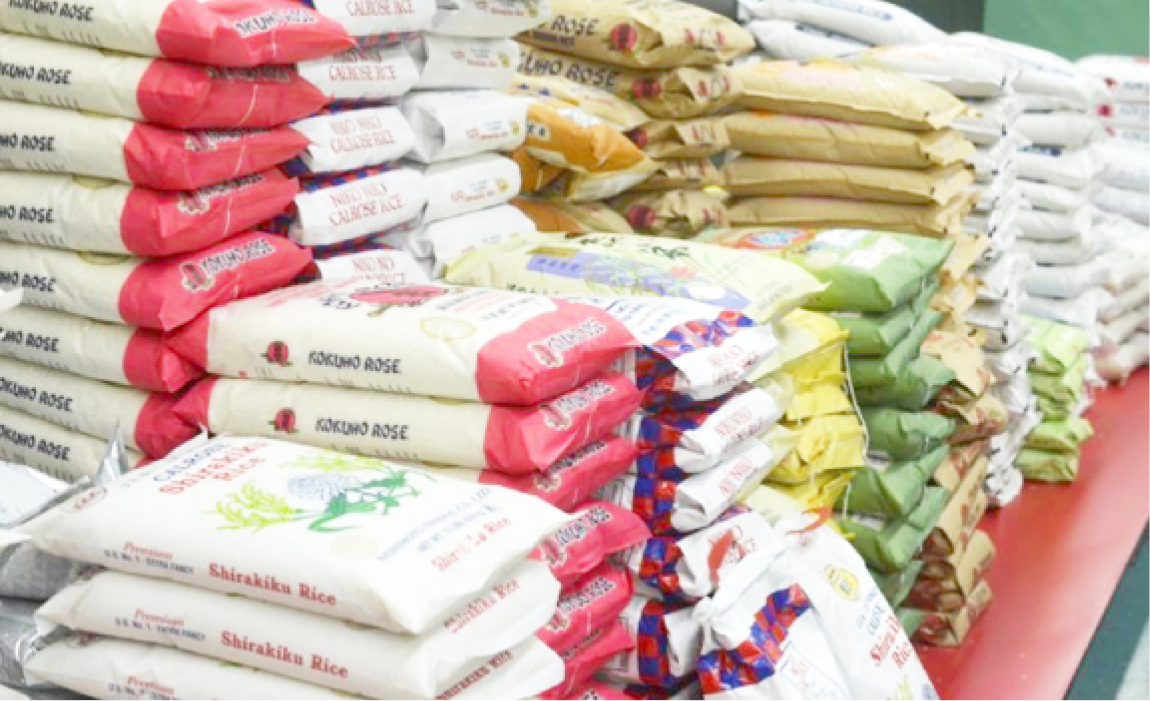Nigeria has grown in the production of rice from a paltry 3 million tons in 2014 to 7.5m tons this year according to figures from the Central Bank of Nigeria (CBN).
This positive surge has got experts focusing on the processing means towards ensuring that the over 200 million Nigerians, with most depending on the staple food, get quality health benefits.
- 69 abducted victims rescued in Bauchi’s bandits’ den
- 2023: GPF, CPAD take violence-free campaign to police, motor parks
“Today, rice production in Nigeria has increased to over 7.5 million metric tonnes annually,” a recent CBN report noted.
According to the statistics update of the Anchor Borrowers Programme (ABP), which is said to be the core facilitator of the rice production growth, CBN through the initiative disbursed N75.99 billion to support the cultivation of over 383,000 hectares of maize, rice and wheat during the 2022 dry season.
Between May and June 2022, the bank released N3.62bn for 12 projects including rice, wheat and maize cultivation.
This intervention brings the cumulative disbursements under the programme to N1.01 trillion to over 4.5 million smallholder farmers cultivating 21 commodities across the country. The CBN’s action is complemented by the onslaught against the import of foreign rice by smugglers being tackled by the Nigeria Customs Service (NCS).
With different varieties of rice in the marketplace, experts believe consumers might be wondering, which one offers the most value for their money just as they recommended parboiled rice in terms of health benefits.
According to healthline.com, there are two major forms of rice, parboiled and un-parboiled. The site says un-parboiled refers to milled rice that has had its husk, bran and germ removed without parboiling. This process significantly reduces its nutritional value.
Parboiled rice is partially pre-cooked in its inedible husk before being processed for eating. Speaking about the benefit of this, John Awuna, a nutritionist in Abuja said, the parboiled rice process has become much more sophisticated but still remains a common way of improving the texture, increasing the shelf life and health benefits of rice.
Also speaking, Hajiya Raliat Abubakar, a distributor of the Big Bull rice brand in Abuja, said: “The parboiling process reduces some of the nutritional loss that often occurs during the rice milling process.
“This makes parboiled rice a healthier alternative with higher retention of key important elements, such as iron, copper, magnesium, phosphorus, selenium, and zinc, as well as the presence of fewer carbohydrates, more fibre and more protein.”
In a recent study, a researcher at the Food Science & Technology Department of Bowen University, Iwo, Prof. Bolanle Otegbayo, recommended parboiling over other rice processing methods for enhancing the nutritional content of the rice.
She said: “Parboiling, which has been the means of processing rice in Nigeria, can be a way of improving the vitamin content and milling properties of rice and should attract the interest of food technologists and food processors to develop the rice industry.”
To improve gut health, Awuna, said one needs the starch in parboiled rice, which acts as a prebiotic, encouraging the growth of healthy bacteria in the gut.
“Having the right balance of microorganisms in one’s gut can impact everything from one’s health to mood, so opting for parboiled rice can be extremely beneficial to your overall health.”
According to Survivalmoms.com, Parboiled rice is an excellent type of rice to store for long-term purposes. It has more nutrients than brown rice, and because the bran has been removed, it won’t become rancid as brown rice will. It is also excellent in recipes because it stays firm throughout the cooking process.
In her advice, Raliat noted that the local capacity to deliver the best-parboiled rice has improved in Nigeria.
“There are a lot of local rice millers now and they are doing great. For instance, the WACOT factory, which is in Kebbi, produces Big Bull rice and it is said to be among the largest rice milling factories in West Africa.
“So, I often advise my customers on the best brand, which would give the nutritional value as well as enough shelf life, for those who are slow consumers of rice,” noted the distributor.

 Join Daily Trust WhatsApp Community For Quick Access To News and Happenings Around You.
Join Daily Trust WhatsApp Community For Quick Access To News and Happenings Around You.

